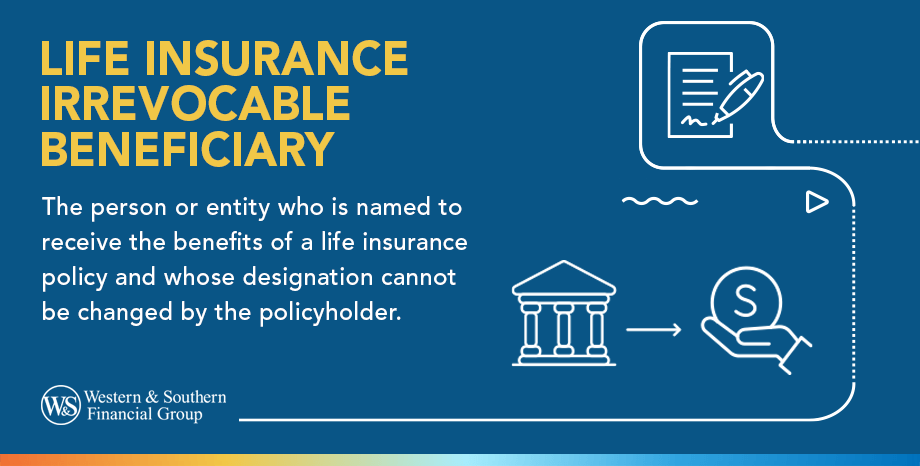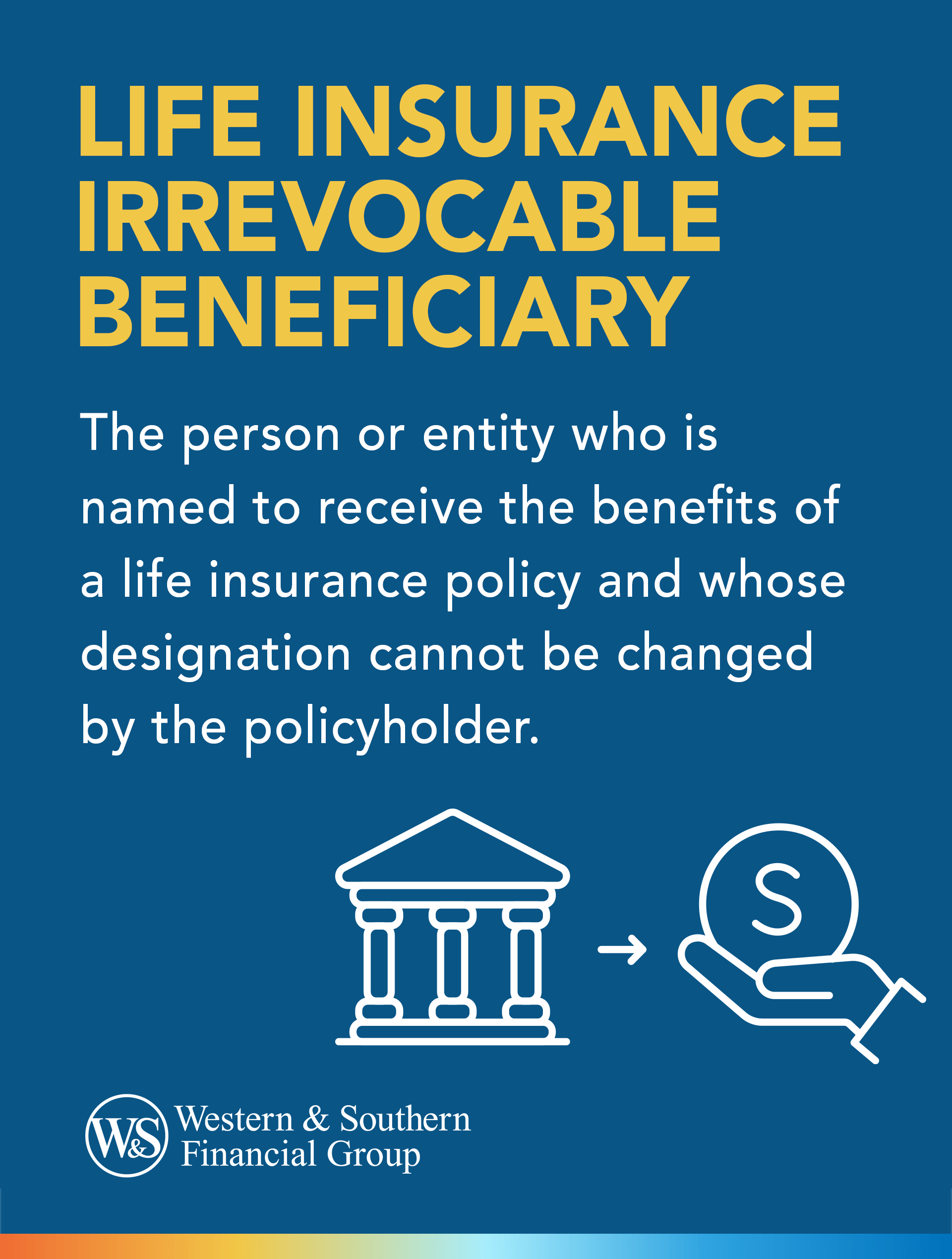

Table of Contents
Key Takeaways
- Life insurance beneficiaries can be revocable, easily changed, or irrevocable, unchangeable.
- Changing a revocable beneficiary involves filling out a short form, while removing an irrevocable beneficiary may require legal action.
- Irrevocable beneficiaries ensure security and predictability in situations like divorce, where both parties must keep life insurance.
- Irrevocable beneficiaries can also be used with irrevocable trusts, ensuring that the trust beneficiaries receive the life insurance proceeds.
- Naming a lender as an irrevocable beneficiary is common when using life insurance as collateral, and businesses frequently do this for key employee policies.
Life insurance can provide security in an uncertain world. While insurance policies are often flexible, sometimes you want to put a plan in place and prevent subsequent changes. An irrevocable beneficiary can help you limit changes that might derail your plan.
If you're wondering what is an irrevocable beneficiary, here's what to know.
Irrevocable Beneficiaries Cannot Be Changed Easily
A beneficiary is a person or an entity named to receive certain benefits. In the case of life insurance, the beneficiary receives the death benefit after an insured person dies. When you arrange life insurance coverage, you usually have the freedom to name beneficiaries and choose who receives the death benefit. The question becomes what happens after the policy is issued.
An irrevocable beneficiary is a beneficiary that cannot be changed or removed easily. For example, an irrevocable trust beneficiary might have a reasonable degree of certainty that they won't be removed as a beneficiary.
Revocable vs. Irrevocable Beneficiaries
In many cases, you can change the beneficiary on a life insurance policy, which means you have revocable beneficiaries. For example, you might purchase life insurance and name your spouse as the beneficiary. However, if your family finances change and your spouse will not need the money after your death, it could make sense to change the beneficiary to somebody else (such as your child or a charity) who would benefit from the funds. Doing so is often easy and involves filling out a short form.
Policies with irrevocable beneficiaries are less flexible. You might need to get written permission or take legal action to remove a beneficiary, which can be difficult or impossible. Also, beneficiaries might receive a notification when a policy changes.
When to Consider an Irrevocable Beneficiary
What is an irrevocable beneficiary best used for? This option provides security and predictability for beneficiaries. For example, if a couple gets divorced, the divorce agreement might require both people to buy life insurance and name their ex-spouse as the beneficiary. But as their lives diverge, neither person can be sure that the ex-spouse's coverage will remain in force, which creates a potential risk. However, if the policies use irrevocable beneficiaries, the beneficiary cannot be changed and the beneficiary gets notified if the policy is canceled, helping both parties rest assured the other is abiding by the rules.
Irrevocable beneficiaries might also play a part when using irrevocable trusts. For example, you might name a trust as the beneficiary of a life insurance policy and the funds eventually go to the trust's beneficiaries.
An irrevocable trust beneficiary is entitled to payments from the trust, and the trust can't remove that person without getting authorization to do so. What's more, that person might enjoy some degree of creditor protection if they don't have the right to withdraw funds whenever they want.
An irrevocable beneficiary can be helpful in business situations as well. When using a life insurance policy as collateral, you might need to name your lender as an irrevocable beneficiary until you pay off the loan. Or if a business buys life insurance on key employees, these beneficiary designations are common.
Choosing the Right Beneficiary Option
In many cases, a revocable beneficiary is an excellent choice, allowing for flexibility when life changes. However, an irrevocable beneficiary might be the right solution when things get complicated — or when you just want more assurance that beneficiaries are protected. It's not uncommon to see irrevocable beneficiaries for divorce, business planning or collateral loans, and the technique may be useful in other situations as well.
Consider the pros and cons for policy owners and beneficiaries and discuss beneficiary options with tax and legal professionals to understand the potential outcomes. With a clear understanding of what is an irrevocable beneficiary, you can choose the best solution for the situation at hand.
Looking for personalized assistance in reviewing your life insurance options? A financial professional can take a look at your personal situation and help you form a plan that works for your needs.















